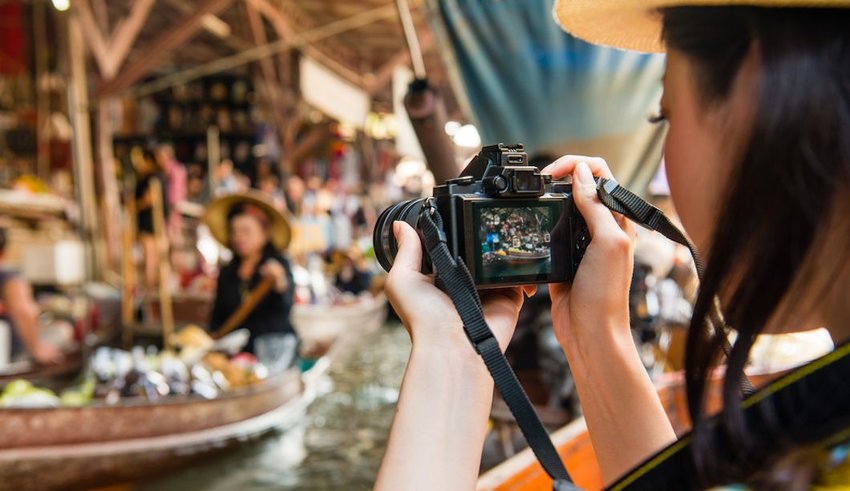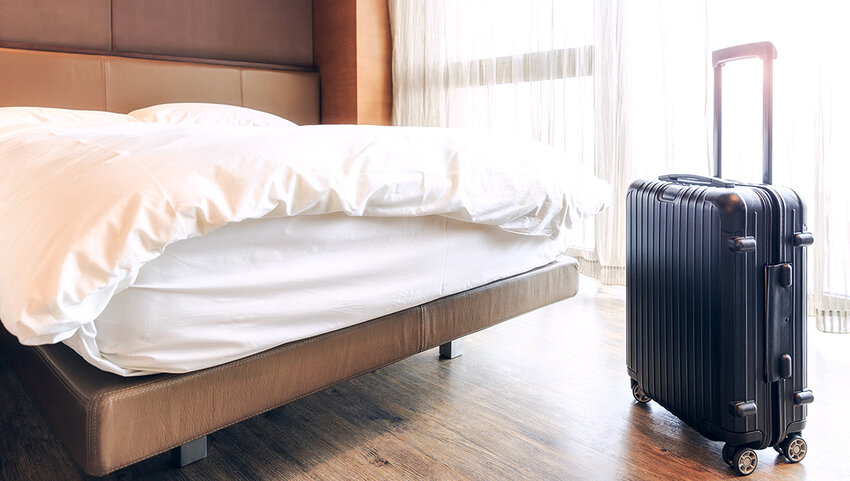You’ve booked your flights, renewed your passport, and made a packing list for your upcoming adventure abroad. Or maybe you’ve been invited to a local event or gathering hosted by people from another culture. Visiting a new country (or people from another country) and exploring its attractions and landmarks is exciting, but not knowing about local customs, etiquette, or social norms can land you in hot water. You probably won’t end up in jail, but you could end up upsetting others, which is guaranteed to make your trip more challenging and less enjoyable. Many of the habits and behaviors we don’t think twice about can offend our overseas hosts, so we've compiled some tips to make it easier to observe local customs and avoid being labeled as an “ugly American.”
Learn a Few Phrases in the Local Language

Learning how to say hello, goodbye, yes, no, please, and thank you in the local language is well worth your time. Locals are more likely to welcome or help you if you make an effort to communicate in their language — even if it’s just a few phrases. Knowing how to say numbers one to 10 and how to ask about costs and bathroom locations will also aid your communication efforts. Bring a pocket-sized phrasebook, or better yet, use mobile apps such as Google Translate or iTranslate that will immediately translate spoken English for you.
Mind Your Hands and Fingers
To avoid cultural misunderstandings, you must understand customary gestures and greeting practices. We usually shake hands when we meet others, but in many countries, shaking hands is rude. We also make eye contact, but in many Asian and Middle Eastern countries, citizens avoid eye contact since it's considered disrespectful. Depending on where you are, it might be customary to bow, kiss one or both cheeks once or multiple times, shake hands with a lighter grip, or with only one downward shake.
While we’re on the subject of hands, some hand gestures we take for granted here are offensive elsewhere. Beckoning with your finger, giving a thumbs-up, or making the “OK” sign is insulting in many locations. Even in countries where English is the native language, gestures can mean different things. For example, in the United Kingdom, Ireland, New Zealand, and Australia, making the “peace” sign (holding up the first two fingers in a V shape) with your palm facing you is equivalent to the infamous middle finger gesture. If you want to order two beers in a pub, make sure your palm faces the bartender!
If you’re traveling to the Middle East, Africa, India, Sri Lanka, or Nepal, avoid using your left hand to eat, pick up anything or hand someone something — even money. In these cultures, toilet paper isn’t always the norm. Many inhabitants consider using the left hand for anything essential as obscene since it is associated with cleaning oneself after using the bathroom. Ditto with an open palm to hail a cab or wave. You might insult someone by using these seemingly innocent gestures.
Watch What You Wear
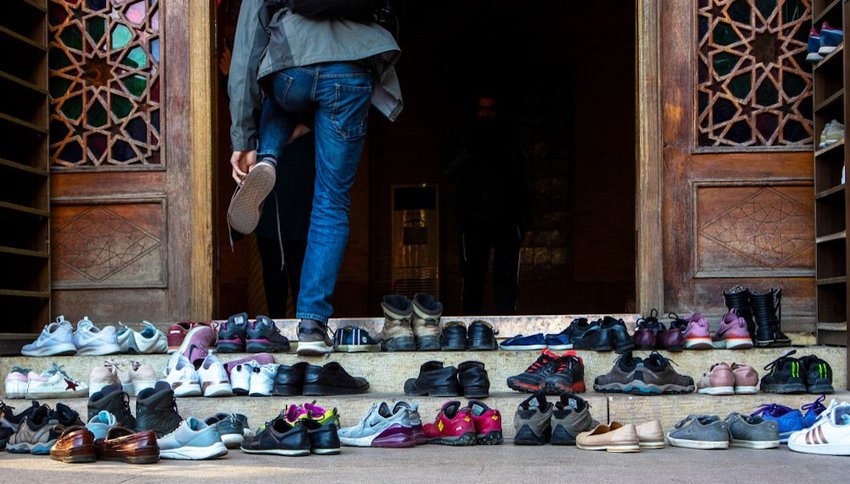
Even if you’re traveling somewhere warm, wearing baseball caps, shorts, tank tops, flip-flops, swimsuits, strapless tops, low-cut shirts, or sundresses not only scream “tourist," but inhabitants might also view you as discourteous. Many historic or holy sites and religious facilities ban such clothing. In general, make sure your shoulders and knees are covered. Women should carry a scarf or shawl to drape over the head if needed. Ripped or baggy jeans, white tennis shoes, sneakers, Birkenstocks, and Crocs may draw frowns in many communities — even in Europe. You don’t have to totter around on heels or wear your best wingtips, but it’s best to stick with low-key, comfortable, closed-toe shoes.
In many Asian countries — especially Japan — it’s customary to remove your shoes before entering homes and some establishments. However, in many Arab, Hindu, Buddhist, and Muslim countries, it’s very disrespectful to show the bottoms of your feet or shoes. Feet and shoe soles are considered the dirtiest parts of the body. If you’re unsure, observe others or follow your host’s lead. Even some jewelry and colors can be problematic. Avoid jewelry and clothing with religious symbolism, national flags, camouflage, swear words, or images others may perceive as obscene or controversial.
When in Doubt, Put the Camera Away
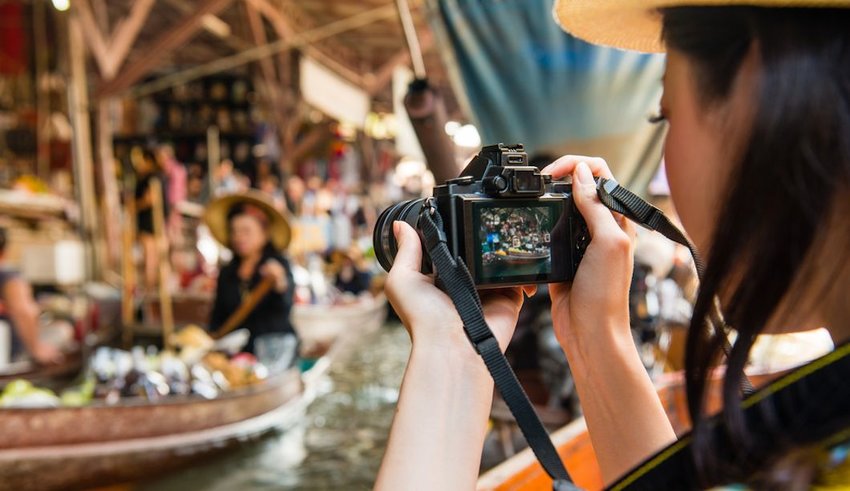
Yes, you want those Instagram-worthy selfies in front of a fascinating or beautiful site, event, or ceremony — however, you might inadvertently anger someone — especially if it’s a wedding, funeral, or another cultural ritual. Ask the person’s permission and check with a local guide or the relevant staff before taking photos if you’re unsure. Some museums, festivals, and attractions ban selfie sticks or flash photography and will impose hefty fines. Unless you’re on an animal safari or birdwatching trip, wearing a camera around your neck snapping endless photos announces to the world you’re a tourist, which might make you the victim of theft.
You should also avoid taking photos at historically tragic locations such as massacre memorials, concentration camps, or otherwise sensitive places. Take pictures when appropriate but try to get out from behind your camera lens. Many of us become so distracted trying to film every moment of our trip, we don’t fully experience or engage in what’s happening around us. And it should go without saying — we should never risk our safety or the safety of others' or animals to catch the perfect shot.
Embrace Trying Local Foods

One of the most memorable things to experience in another culture is often its food. Preparing, serving, and eating meals play a significant role in local customs. You might find yourself in a landmine of social faux pas if you don’t do a little research in advance or ask a local guide. In many cultures, it’s rude to refuse foods or offer to pay for your share of the check. On the flip side, in some cultures, you’re expected to decline offerings a few times before being persuaded. In the U.S., hosts love it when we clear our plates, but it’s better to leave a little food on our plates in some countries. If you eat everything, your host might feel terrible and think he or she didn’t offer you enough food. However, this depends on where you are and what type of food. For example, in Thailand, you should leave a little food on your plate, but not rice since that would be wasteful.
The use (or non-use) of serving utensils can also land you in a proverbial pickle. For example, in Japan, you should never stick your chopsticks vertically into a bowl of rice, pass food with chopsticks or take food from a communal bowl with the narrow ends you put in your mouth. Slurping noodles and broth-based dishes directly from the bowl might seem rude to us, but in many Asian countries, it demonstrates to the chef we’re enjoying the meal. The Culinary Travel Guide offers a thorough list of eating etiquette guidelines for several countries.
Learn Tipping Etiquette
No post on overseas etiquette would be complete without mentioning tipping. We’re accustomed to tipping in restaurants, bars, taxis, and other locations, but once we leave our borders, knowing when, who, and how much to tip is puzzling at best and insulting at worst. In many Asian countries such as Japan and Singapore, tipping is considered an ostentatious display of wealth and disrespectful to the recipient. In many locations, service fees are included in the bill, so tipping is unexpected and unnecessary. However, in other cultures, locals rely on tips to feed their families, so you might offend your server or guide by not tipping adequately. World Travelers of American offers a comprehensive tipping chart for 70+ countries, but you should also ask your local guide or concierge.
Research Your Destination’s Customs and Traditions
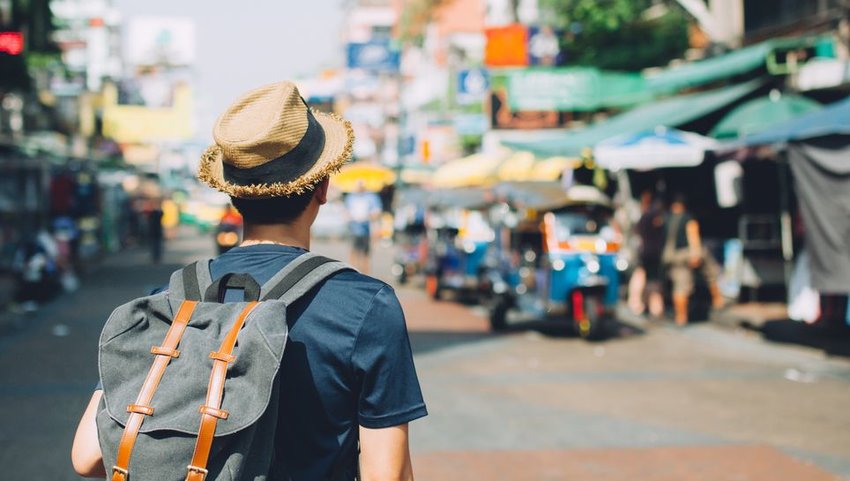
The best insurance policy against committing embarrassing or insulting acts is to research your destination. A few Google searches or purchasing a current guidebook are well worth the time and money. Culture Smart publishes in-depth guides about local culture for dozens of countries. The more you know before you go, the more comfortable you’ll feel venturing beyond your hotel and creating memorable experiences.

